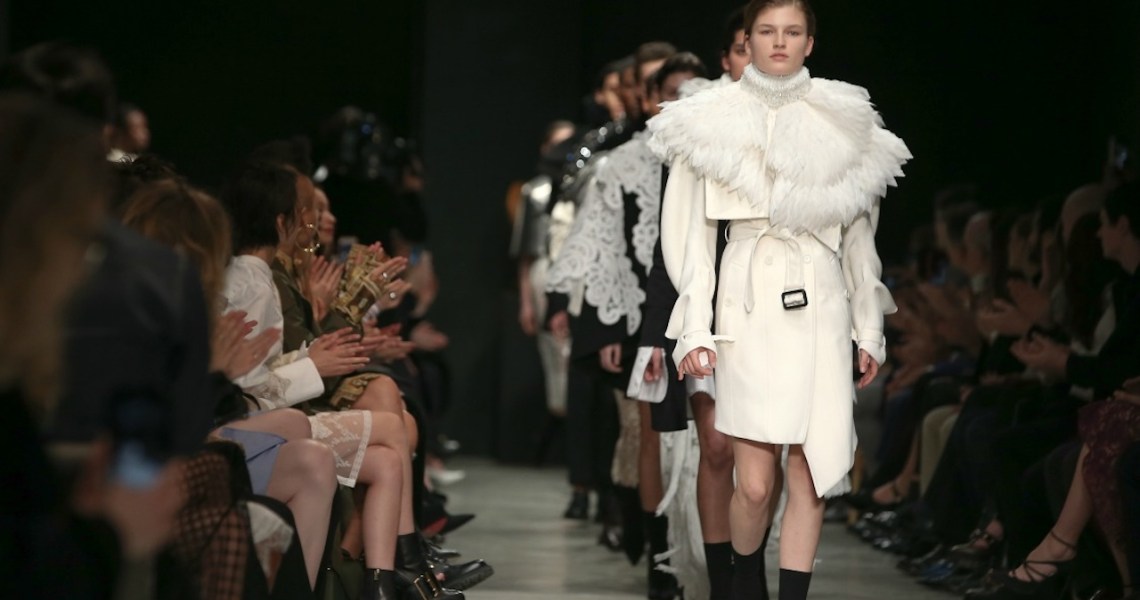In early February, boot brand Ariat co-founder and CEO Beth Cross said that, in the short term, the coronavirus would have an impact on the way fashion businesses operate. But if the crisis were to continue, she said, it would mean big hits to sales for fashion at large. Nearly two weeks later, that’s proving true.
In the past week alone, brands have started to speak up about just how impactful the coronavirus has been on their business, not just on a logistical level but in terms of sales. This has hit luxury brands particularly hard as many of them rely on China as a significant source of business.
Burberry has already temporarily closed 24 of its 64 stores in China, impacting sales in both mainland China and in Hong Kong. A representative from Burberry said that the biggest immediate impact is on spending within China, but the company also expects that in the coming weeks, spending from Chinese tourists at Burberry stores elsewhere in the world will also suffer as those travelers stay home. Popular destinations for Chinese tourists include London, where Burberry has seven stores, and New York City, where the company has 10 stores.
“The outbreak of the coronavirus in mainland China is having a material negative effect on luxury demand,” said Marco Gobbetti, CEO of Burberry, in an emailed statement. “While we cannot currently predict how long this situation will last, we remain confident in our strategy. In the meantime, we are taking mitigating actions and every precaution to help ensure the safety and wellbeing of our employees.”
Capri Holdings, which owns Versace and Jimmy Choo among others, said that it expects a $100 million loss of sales from the virus so far. Alibaba did not offer specifics, but said that its next quarterly financial earnings will reflect a significant downturn because of the coronavirus. Ralph Lauren estimates a $70 million loss in sales since the outbreak of the virus.
“Our overall revenue growth rate, we believe, will be negatively impacted for the March quarter,” said Maggie Wu, Capri Holdings’ chief financial officer, said during the company’s earnings call on Wednesday.
And there could be more long-term effects on the horizon. Brands that don’t necessarily sell or manufacture in China could be affected if their core customer is a frequent traveler. Travel brands, airport retail and tourist destinations like Hudson Yards could all see an effect as more travel restrictions on who can enter and leave the country are put in place. As of Friday, more than 50 countries around the world, including the U.S., Italy and Australia, have restricted travel to and from China.
Ad position: web_incontent_pos1
“We are primarily manufactured in Europe; therefore, we are not significantly impacted by coronavirus on a factory level,” said Tessa Horovitz, co-founder of luxury travel brand Ametti. “However, the Ametti community is a global network of businesswomen who travel on a regular basis to China and all over the world, so no doubt coronavirus is impacting our customer.”
China will likely stay a major player in both manufacturing and consuming fashion, but brands were already reconsidering putting all their proverbial eggs in China’s basket due to the China-U.S. trade war. This crisis may only exacerbate those feelings.
“While retail sales are first of mind to be impacted by the outbreak, it’s the smaller emerging brands that may not have such an organized supply chain structure or [adequate] budget that will be challenged the most during this time,” said Kayla Marci, market analyst at Edited. “Even before the outbreak, retailers were exploring options of sourcing outside of China. The country will still remain a powerhouse for the industry once the virus has subsided. But in the long term, we can expect more retailers to spread production, sourcing and manufacturing across countries to avoid future risk.”




